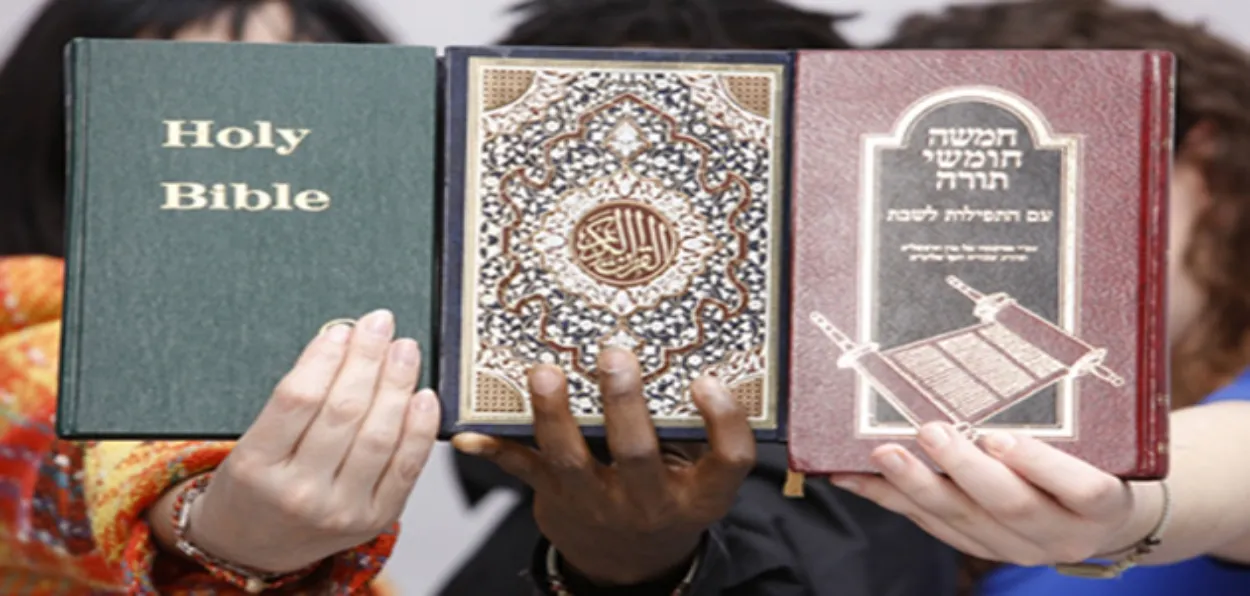
Eman Sakina
In Islam, revealed scriptures occupy a central role as the primary sources of guidance, legislation, and spiritual insight. Muslims believe that throughout history, God (Allah) has communicated His will to humanity through a series of revelations delivered to selected prophets. These divine messages were compiled into holy scriptures that form the foundation of the Islamic faith and practice.
Friday Musings
The Arabic term ‘wahy’ refers to divine revelation—God’s communication with His prophets. Islam teaches that revelation is a deliberate and purposeful act of God to guide humanity towards truth, justice, and salvation. The Qur'an states:
"Indeed, it is We who sent down the Reminder, and indeed, We will be its guardian." (Qur'an 15:9)
This indicates the divine origin and protection of revealed scriptures, particularly the Qur'an, which Muslims believe to be the final and complete revelation.
We can identify four main reasons for the revelation of scriptures:
1. The scripture revealed to a prophet is a point of reference to learn the religion and obligations towards God and fellow human beings. God reveals Himself and explains the purpose of human creation through revealed scriptures.
2. By referring to it, 'disputes and differences between its followers in religious belief and practice or matters of social practice could be settled.
3. The scriptures are meant to keep the religion safe from corruption and deterioration, at least for some time after the prophet's death. At present, the Quran revealed to our Prophet Muhammad, may the mercy and blessings of God be upon him, is the only scripture to remain safe from corruption.
4. It is God’s proof against human beings. They are not allowed to oppose or overstep it.
Islam is more inclusive in the holy revelations it affirms than any other heavenly religion in its present form.
Muslims uphold and respect the following scriptures:
(i) The Quran itself, revealed to the Prophet Muhammad.
(ii) The Torah (Tawrah in Arabic) was revealed to the Prophet Moses (different from the Old Testament read today).
(iii) The Gospel (Injeel in Arabic) revealed to Prophet Jesus (different from the New Testament read in churches today).
(iv) The Psalms (Zaboor in Arabic) of David.
(v) The Scrolls (Suhuf in Arabic) of Moses and Abraham.
Islam affirms that God revealed the Quran as a witness over the previous scriptures and confirmation of them because He says therein: “And We have sent down to you (O Muhammad) the Book (the Quran) in truth, confirming the scripture that came before it and trustworthy in highness and a witness over it (the collection of old scriptures) …” (Quran 5:48)
This means the Quran confirms whatever is true in previous scriptures and rejects whatever alterations and changes human hands have made to them.
In the Qur’an, the communities to whom messengers and revelations were sent before the advent of Muhammad’s Ummah are described as Ahl al-Kitāb (literally, People of the Book); meaning a people who have been given a divine writ or revelation. The scriptures that were revealed before the Qur’an are believed to have been sent to particular groups of people and nations.
By comparison, the only scripture believed to be universally intended for humanity according to Muslim theologians is the Qur’an. The three scriptures Torah (Tawrāt), the Psalms (Zabūr), and the Gospel (Injīl), are therefore understood as having been specifically addressed to the nation of Israel (or as it later was called, Judea).
It is stated in the Qur’an, “It was We who revealed the law (to Moses): therein was guidance and light. By its standard have been judged the Jews, by the prophets who bowed (as in Islam) to Allah’s will, by the rabbis and the doctors of the law: for to them was entrusted the protection of God’s book, and they were witnesses thereto”; and “in their footsteps We sent Jesus the son of Mary, confirming the Law that had come before him. We sent him the Gospel: therein was guidance and light, and confirmation of the Law that had come before him: guidance and an admonition to those who fear God.”
Muslims are taught to respect the Tawrah, Zabur, and Injil, but to refer to the Qur'an as the final arbiter of truth. This belief strengthens the idea of progressive revelation, where divine guidance was revealed in stages, culminating in the Qur'an.
The Qur'an emphasizes that its message is universal and timeless: "This [Qur'an] is a message for humanity, so let them take warning from it." (Qur'an 14:52)
This underlines the Islamic belief that divine revelation is not confined to a particular group or era but intended for all mankind.
ALSO READ: Ustaad Ahmed Hussain and Mohammed Hussain have kept soul of Ghazal alive
Revealed scriptures in Islam are not merely historical texts but living guidance for faith, action, and contemplation. They illustrate the continuity of divine message and God's mercy in guiding humanity through chosen messengers. The Qur'an, as the final revelation, occupies a unique position in Islamic theology and daily life, serving as the ultimate source of truth and wisdom for Muslims worldwide.
